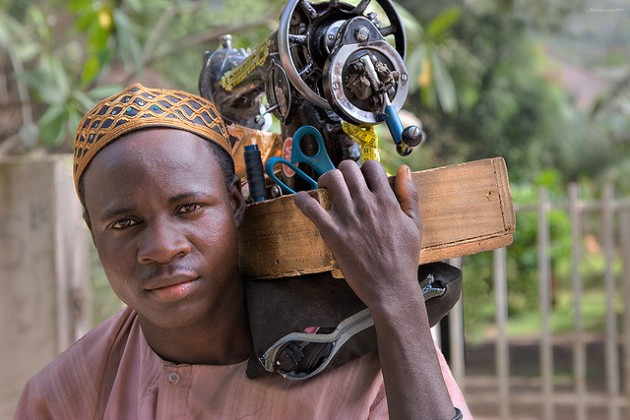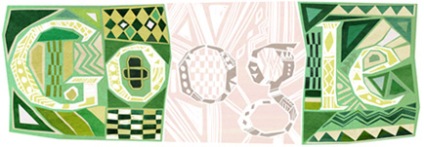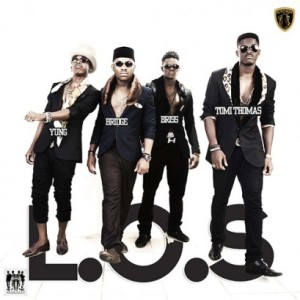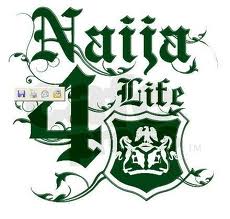
So, I wrote in for a competition about 2yrs ago, i didn’t win oh. 🙂 But, I saw it now and well… here it is… enjoy.
NIGERIA A NATION @ 50
It all begins with a celebration. Yes, Nigeria is fifty; that hall-mark, that middle age. The logic behind birthdays is simple. As one get older, the birthday gets bigger and noisier blocking out the chant in your head declaring: “so you’re fifty. Big deal. Not like you’ve done anything worthwhile have you?” No-one can think of the sad state of their lives and basic lack of accomplishments surrounded by the noise of people happy to devour free food and drinks, it bothers on the impossible. Nigeria is no exception to this, hence this medium for analysis on how we have done, and exactly what we have done so far. However, there are always two sides to a coin; so birthdays have their perks as well. They help in refocusing and redirecting one’s life; grab that good old bull by its horn and charge into being world wonders.
There is, I believe, a path that Nigeria has followed from her independence in 1960 till now: a calm period, an uprising, a climax and denouement period.
The calm period was one very much in the past; around the time when the country first gained her independence from their colonial masters, the British. At the time, there was much joy and jubilance because it was assumed that the beginning and end of our problems were the British who ruled us. Little did we realise that we were our own problems. Frankly and to all truth, without the British, we could have existed in relative peace. That is, if they had never set their spyglass on Nigeria. This is because, at their arrival, they had introduced so many things emotionally, spiritually and psychologically to us. When hitherto, cultures had divided communities they now were forced together. The Ibos began travailing into the Hausa land. The Hausas who had little contact with the British did not take kindly to these outsiders, especially when these Ibos began to grow uncontrollably and taking over their trading. Many Ibos lost their lives. It was at this point that it began to dawn on Nigerians that even though we were all of the same country, we first saw ourselves as members of our individual communities and this barrier would always divide us psychologically.
The country was thrown into further uproar as those who had first swerved the British into granting us independence were being assassinated or jailed. A military coup was staged and democracy was given a back seat in the theatre of ne’er-come-about. Undue mismanagement of funds and general greed by the then government deflated the once buoyant economy. At the time. as more politicians realized the financial advantages of having a share in the national cake, there was no holding them back. Then the military came into power.
At this stage, Nigerians knew what it was to be controlled and to live in fear, to have no freedom of speech and watch their country to fall into decline. The air was practically heavy with the threats of war. Riots broke out uncontrollably, civilians lost their lives in the hands of the police without any official turning a hair, any politician interested in making things better got jailed, killed or had to leave the country. Coup after coup, assassination after assassination, and the country was run by people who invariably had no standing benefit to the country. The country at this time had a massive decline in the sectors that required more input of funds than output; sectors like the education sector, the power sector. Public schools and universities spent more times with their teachers and professors being on strike than any actual learning. The power sector was a torn hole in Nigeria’s pocket; it was a method to amass a large amount of money. Civil servants were paid irregularly by the government.
Critics of the country started to arise in journalists, in musicians and in politicians. This side was not an easy side to be on at all. Several monarchs of the country began to arise: Jide giwa, MKO Abiola, etc.
Finally the military reign of terror and exploitation collapsed with the mysterious death of the last military leader- Gen. Sanni Abacha. Then news started to rise on the amount of money amassed by these leaders, stored basically in the Swiss bank, or used in purchasing large expensive properties abroad and at home. The amount was in billions. There was uproar and Nigerians voiced the opinion of not having the military taking over power.
The year 1999 brought about another stage in Nigeria’s life. The renewing of democracy or so we were led to believe. In this, though the country could only say she was in a democratic regime, elections could never be called free or fair; political strategies as assassinations and riggings were rampart.
Nigeria had grown enough to differentiate between what she wanted and what she did not. She wanted constant power supply, she wanted education, she wanted good roads, she wanted a thriving economy, and she wanted more exportation. She did not want manipulative leaders with sugar tongues and money laundering tendencies. She wanted to regain her platform as the Giant of Africa, instead of the weak country she had become. Though honourable a quest, Nigeria did not know how to go about regaining this lost ground because the past years were basically wasted years and for a country that had being on the path of development to have been shot down, getting up and finding footing was going to be hard.
So elections arrived and votes were casts. Votes were rigged, politicians had their lives threatened and the more powerful and impactful won.
There was a double reign that realised to Nigerians the oil sector, its addition to the economy, its place as having one of the largest oil reserves in the world and the decline the Niger-Delta had fallen into; the cost of realising oil from the area.
The non-oil sectors began to develop slowly, non-governmental organizations began to realise profits, making imitations of existing governmental companies and winning contracts against them and doing a better job of it. The agricultural sector was another which was thriving as Nigerian products slowly returned to markets and some were even exported.
Nigerians began to voice their opinions, openly criticize and analyse any move the government made as transparency o governments began to reign. More women were accepted into government bodies in higher positions. Governors began to take responsibility of the growth of their offices.
Although Nigerian had seen the direction to take, she still battled with corrupt leaders, money laundering. It was no surprise that when rumours of a third term arose, Nigerians did not take the matter sitting down Nigeria rose indignantly against it. We now saw that no matter how chaotic Nigeria seemed, she was determined to grow, and grow the right way at that.
A new government then came into power. And unlike the previous one that claimed to be transparent, this one seemed transparent to Nigerians and the joy of the person one voted for was rampant. This government taught to Nigerians exactly what self-development entailed. There were banking reforms, taxation enforcement, struggles to keep the petrol price constant irrespective of strike, decrease in strikes of public schools and universities, vast support in growth of private companies and ventures. Solid establishment of bodies to check monetary crimes especially government officials, re-standardizing of the Nigerian Police Force, there also were attempts to curb the Niger- Delta situation which its indigenes had taken into its own hands by kidnapping non- Nigerian workers and holding them hostage for exorbitant sums of money. This scared away potential investors as was the plan. However, without investors, Nigeria’s oil will remain in reserve; and as the number one source of income to Nigeria, she her hope for a buoyant economy would be in jeopardy..
To a society used to destroying any impediment to its idea of progress, the amnesty program was an unwanted shock. It showed our illogical methods in finding permanent solutions. We wanted soldiers to storm the area and force the militants into submission, forgetting conveniently that the only reason why they turned to such a life was our undue exploitation of the land with no thoughts as to its survival. Oil spill after oil spill, the waters became unfit for living, the formerly rampant fishing in the area became a long forgotten dream. But another strategy was suggested; let each state engage in the development of her resources, so oil will become Niger-Delta territory. A valid suggestion, but one Nigeria would not follow through with. She had learnt that comments like that though honourable in intent would, in the long run, have a far less honorable outcome. Prices of oil would sky-rocket, there was no choice, and amnesty was accepted.
The demise of the honourable president Umaru Yar’ Adua led the country to confusion as military take-over filled the air but vice-president Jonathan Goodluck succeeded him as president till the 2011 elections.
Nigerians are more than ready for more development, as more and more Nigerians rise as incorrupt and honourable men and women of conduct who solely have Nigeria’s best interests at heart.
The future of Nigeria is bright if the present is any indication. For now though, it is dim and the path is rough. However, the past has shaped the country into one not accepting of any misconduct whatsoever. The worst has come and gone, but it has taught us just how insufficient we can be to ourselves and to others once we spiral out of control.
Now, the future looms once dark and uncertain, but now, not so much. The reason development is called development is the presence of continuity and sustenance. In the absence of these, there is no real progress. If Nigerians can slip off their magnifying glasses and actually survey the country before to that of now, we would actually realise and see just how far we have move d over the last fifty years.
Yes, Nigeria is amongst the largest oil producing nations and ought not to have any petroleum problems…
Yes, the forever going on debate on whether we really were ready for independence and for the running of the country….
Yes the amount of money pumped into the Power Holding Company- PHCN (or NEPA as she is fondly remembered) we ought to be lighting Africa but still I believe this country has gone far more than we credit her with. At independence, the people who could run the country numbered far less than those wanted to control the country for their own agendas. Overtime, we have continued to battle this problem; it is a slow but winning battle. Now we now the capabilities we can fall to for a little extra pocket and not have a false notion that all political candidates are interested in our sole benefiting and then they assume the throne and strip us of everything, even the clothes on our backs? Now we know. Is it not better that we know just how low our politicians can go to win, killing, kidnapping?
The approach Nigerians are taking to measure Nigerians growth is easy to see. There are two: criticism and comparing.
Criticism is good; looking at oneself from Abia to Zamfara, local council to federal government and pin point loose nuts and bolts and work out haw to tighten up the system.
Comparing is also a good tool as far as you are viewing the correct mirror. We keep on comparing ourselves to the United States of America, to South-Africa, then turn a decidedly blind eye, deaf ear and dumb mouth to any similarities. The USA has had her share of corrupt leaders and wars; she is over a hundred years old. South- Africa that was once a system in apartheid has risen from her ashes. Or has she? The Africans there are poor and diseased and barely have above menial jobs. Drug wars are constant HIV/AIDS is as common place as anything and the richer neighbourhoods are the non- South Africans.
A poor man cannot look at owner of nations and begin to compare himself to such wealth and expect development. No, this person can only be at best a mentor a future cast of his dreams for years to come. Why? They are not on the same level. Rising to the top is an uphill journey, a step at a time, trying to jump up the rung of a ladder to reach the top will only be disastrous. This is what Nigerians do when they compare their country to the United States of America and compare. I mean, when they were sailing ships, we were paddling canoes, whilst they were colonial masters we did not even have a country, when they were in vehicles we were on camels and horses. Without saddles! So why do we think we ought to be at par with them now? You first compare to one a bit better than you, get up to their level then advance at that pace.
How many countries have three major, large, independent cultures and numerous others joined in one country and at the same time have two equally assertive religions trying hard to maintain peace in that one same country. Isreal and Pakistan have being engaged in wars for years, but for Jos, we had managed to maintain relative religious peace.
The fact is we are not going to become the Giants of Africa in the next four years; but we know now just how precious and fragile democracy really is; how with the pop of a gun we can fall back into the terror of the past years.
The past years have being a trial and a tribulation, but the fact we have not turned chicken and run is sign enough to persevere and have hope. For where there is hope there is life and where there is life improvement.
We are in dark waters now, paddling blindly, the storm has long past but we have not sunk. If you look ahead, just over there, you will see the light at the end of the tunnel. Can you see it?

 And if we ever run out, the following groups or individual have their own say…
And if we ever run out, the following groups or individual have their own say…


You must be logged in to post a comment.